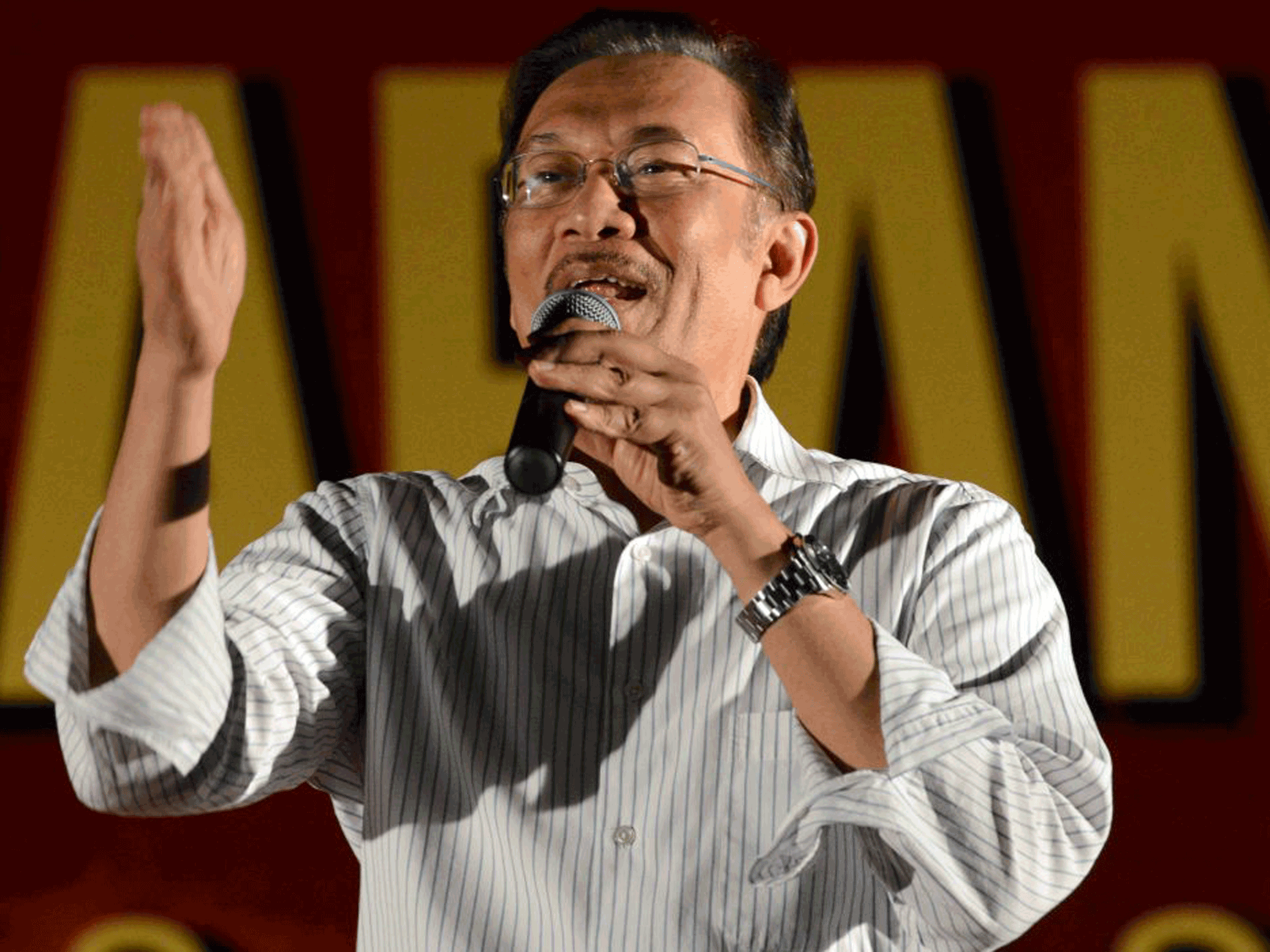
Your support helps us to tell the story
From reproductive rights to climate change to Big Tech, The Independent is on the ground when the story is developing. Whether it's investigating the financials of Elon Musk's pro-Trump PAC or producing our latest documentary, 'The A Word', which shines a light on the American women fighting for reproductive rights, we know how important it is to parse out the facts from the messaging.
At such a critical moment in US history, we need reporters on the ground. Your donation allows us to keep sending journalists to speak to both sides of the story.
The Independent is trusted by Americans across the entire political spectrum. And unlike many other quality news outlets, we choose not to lock Americans out of our reporting and analysis with paywalls. We believe quality journalism should be available to everyone, paid for by those who can afford it.
Your support makes all the difference.Malaysia’s governing coalition extended its 56-year rule despite its worst-ever result in a general election yesterday, thwarting an opposition alliance that had pledged to clean up politics and end race-based policies.
The vote count went on well into the night, after a record 80 per cent of voters turned out to cast their ballot in the bitterly contested election, though it soon became clear that the Opposition People’s Alliance, led by Anwar Ibrahim, had failed to bring the curtain down on one of world's longest serving governments.
With just one result left to declare, the National Front led by Prime Minster Najib Razak had won 133 seats in the 222-member parliament, falling well short of the two-thirds majority that Najib had aimed to capture in Sunday's election.
The opposition won 88 seats this year, according to latest results, up from 82 last time.
It was not yet certain whether 59-year-old Mr Razak would receive a strong enough mandate to continue reforms to enhance investment and ease authoritarian laws. His failure to improve on the coalition’s result in 2008 – when it took 140 seats – could weaken his leadership and unnerve investors.
"We will work towards more moderate and accommodative policies for the country," a gloomy-looking Najib told a news conference after the majority was confirmed.
"We have tried our best but other factors have happened . . .We didn't get much support from the Chinese for our development plans."
He could now come under pressure from conservatives in his own ruling party for not delivering a stronger majority despite a robust economy and a $2.6 billion deluge of social handouts to poor families.
Proceedings were marred by accusations of voting irregularities. A possible dispute over the result loomed, after Anwar declared victory in a surprise statement, apparently to whip up support.
“PR has won,” Anwar wrote on his Twitter account, urging the ruling party and the country’s Election Commission “not to attempt to hijack the results”.
The election campaign has been riddled with violence and accusations of voter fraud including plans to fly voters into marginal electorates, phantom ballots, mysterious buses and indelible ink that turned out to be washable.
Candidates and voters took to social media to vent about voting discrepancies soon after polls opened. Opposition candidate Teo Nie Ching said “five or six voters” had complained that someone had voted on their behalf.
However, in a press conference today, the Election Commission chairperson Abdul Aziz Yusof said that they had not found any “dubious voters” in electoral lists.
The election had been called the closest in history, as the opposition alliance rode a wave of discontent over corruption and widening inequality between majority Malays and minority ethnic Chinese and ethnic Indians, strengthened by the government’s race-based policies.
The Election Commission reported that 80 per cent of the country’s 13 million voters turned out on election day, the highest in Malaysian electoral history.
“People feel very empowered, this is a generational shift,” said Dr Ooin Kee Beng, the deputy director of the Institute of Southeast Asian Studies. “Everyone wants a stake in what their country should be, and they’re not going away.”
Join our commenting forum
Join thought-provoking conversations, follow other Independent readers and see their replies
Comments